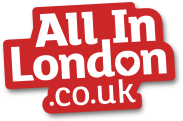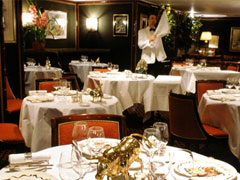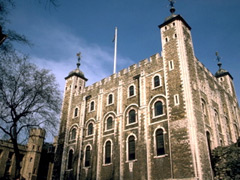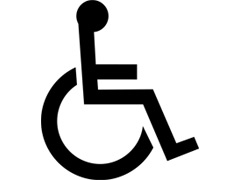
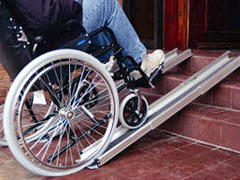
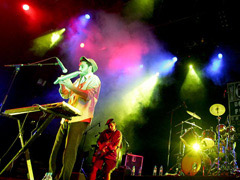
By law, venues providing entertainment to the public have to make “reasonable adjustments” to ensure they are easily accessible to disabled people. Ideally this means wheelchair access, lifts to all floors, disabled toilets and facilities for the blind and hard of hearing, however more often than not venues will offer one or a few of these, in many cases depending on the age of the building. It’s always a good idea to contact the venue before attending to check what they offer.
Cinemas
Most of the major cinema chains, like Odeon, Vue and Cineworld show films with subtitles; check their listings to find out when they are being screened. Many also have induction loops or infrared systems, which reduce the noise in the background giving a clearer sound. Audio descriptions are also available at some cinemas, for this you need to pick up a pair of headphones and will usually be charged a refundable deposit.
Don’t forget that you can apply for a Cinema Exhibitor’s Association Card, which entitles you to take someone with you for free. It costs £5.50 a year and you can pick up an application form at a participating cinema.
These smaller cinemas are also accessible:
The Electric Cinema has ‘Electric Access’ screenings on a Monday afternoon, when films with subtitles and audio descriptions are shown. (At the time of writing, they are closed due to a fire).
Branches of Everyman in Maida Vale and Belsize Park have lifts or stairlifts, while the Hampstead Cinema’s screen 1 is at street level.
Both Curzon cinemas, in Mayfair and Soho have full disabled access as well as an induction loop system. In addition the Soho branch regularly shows films with subtitles.
Both screens at the Ritzy Cinema are wheelchair accessible, however the mezzanine level is not. The cinema has induction loops, audio descriptions, and they even allow guide dogs into the auditorium.
The cinema screens at the ICA are wheelchair accessible; they also have loop systems and guide dogs are welcome.
Prince Charles Cinema has a disabled toilet but they are still working on access to the first floor.
\n\nTheatres
Much like cinemas, numerous London theatres have audio descriptions, subtitled performances, and even British Sign Language, where an interpreter stands in a prominent position and communicates what is happening in the show to the audience. The Access London Theatre Guide, a free guide published three times a year in Braille, large print and on CD, has detailed listings of shows with all the above facilities.
The following theatres are among the best for disabled access: The Barbican, London Coliseum, Unicorn Theatre, Soho Theatre, Sadler’s Wells, Lyric Hammersmith and National Theatre. These have lifts to all levels, disabled toilets, at least four wheelchair spaces, and infrared sound amplification.
Pubs and Bars
Unfortunately not all pubs and bars have facilities such as disabled toilets. Most branches of big chains like Walkabout and O’Neill’s do – but not all of them. There are of course too many to list here, so if in doubt always enquire before you go. The following (small) selection consists of inner London venues that are wheelchair accessible, have disabled toilets and permit guide dogs: The Garrison, Spanish tapas bar Copita, Edinboro Castle, The Long Acre, Punch & Judy, Holborn’s All Bar One and The Clarence.
\n\nLive music venues
Some of the larger music venues, like Koko, have induction or infrared systems similar to those in cinemas. While concessionary rates are not usually on offer for gigs, some places (Mean Fiddler venues such as the HMV Forum and Jazz Café) offer a free ticket to anyone over 18 who is accompanying someone in a wheelchair.
The aforementioned HMV Forum and the Jazz Café welcome guide dogs and offer assisted wheelchair access. Both these venues, along with Barfly, Village Underground and Koko can provide allocated space at live gigs to ensure you get to see the band, contact them before you go.
There are other things to take into consideration, such as whether the bar and smoking areas are accessible. Larger venues may sometimes provide a bartender if you let them know your requirements in advance, and similarly access to smoking areas can be provided via a makeshift ramp, but always check beforehand.
Nightclubs
Sadly, it seems clubbing and disability don’t yet have an easy relationship, however this is partly due to the venues themselves – old warehouses and buildings have often not been modernised to incorporate disabled access.
That being said, don’t be put off going to listen to your favourite DJ. London’s two biggest nightclubs are wheelchair-friendly: Fabric, which also has disabled toilets, and Ministry of Sound. In the latter case only the ground floor is accessible, but this is where the main dancefloor is. Corsica Studios and Brick Lane’s 93 Feet East are also wheelchair accessible, both showcasing exciting new music into the early hours – but thankfully this list is by no means exhaustive. More and more clubnights are taking place in random spaces, so if there’s an event that takes your fancy get in touch with the promoter to ask about their facilities.
